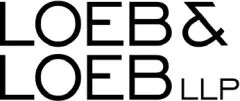In Viacom International Inc.'s $1 billion copyright suit against Google Inc., and its YouTube platform, the Court of Appeals for the Second Circuit Thursday vacated the district court's grant of summary judgment in favor of Google, in which it held that Google was entitled to protection from liability from all of Viacom's claims under the safe harbor protection of the Digital Millennium Copyright Act (DMCA). The Second Circuit found that while the district court correctly held that §512(c), the safe harbor provision applicable to online service providers, requires knowledge or awareness of specific infringing activity before an online service provider is disqualified from protection, summary judgment on the issue was premature, because evidence existed from which a reasonable jury could conclude that YouTube had actual knowledge or awareness of specific infringing activity on its website.
The district court had ruled that, under the DMCA, mere knowledge of the prevalence of a general practice of posting infringing material was not enough to impose liability on YouTube. The appeals court agreed, but found that, based on the evidence, including a 2006 internal YouTube report advising that clips of popular television shows (including Viacom shows) were available on YouTube at the time, that this content was "blatantly illegal" and that YouTube should consider preemptively removing it, "a reasonable juror could conclude that YouTube had actual knowledge of specific infringing activity, or was at least aware of facts or circumstances from which specific infringing activity was apparent." What was needed, according to the court, was a determination as to whether YouTube had actual knowledge of specific infringing activity related to the copyrighted clips at issue in the litigation needed. The second circuit remanded the case for further fact finding on this issue.
On an issue of first impression, the Second Circuit also held that the common-law concept of "willful blindness" may be applied, in appropriate circumstances, to demonstrate knowledge or awareness of specific instances of infringement under the DMCA, and directed the district court on remand to consider whether the defendants made a "deliberate effort to avoid guilty knowledge[.]"
In granting summary judgment, the district court also found that item-specific knowledge of infringing activity is required for a service provider to have the "right and ability to control" infringing activity, and therefore to be disqualified from the safe harbor protections. The court of appeals disagreed, finding the lower court's interpretation of the "right and ability to control" erroneous. Rather, the court reasoned that while the provision requires more than just the ability to remove or block access to materials posted on the service provider's website, exerting substantial influence on the activities of users, without necessarily - or even frequently - acquiring knowledge of specific infringing activity - would be sufficient, and remanded to the district court to consider whether Viacom adduced sufficient evidence to allow a reasonable jury to conclude that YouTube had the right and ability to control the infringing activity and received a financial benefit directly attributable to that activity.
The content of this article is intended to provide a general guide to the subject matter. Specialist advice should be sought about your specific circumstances.


